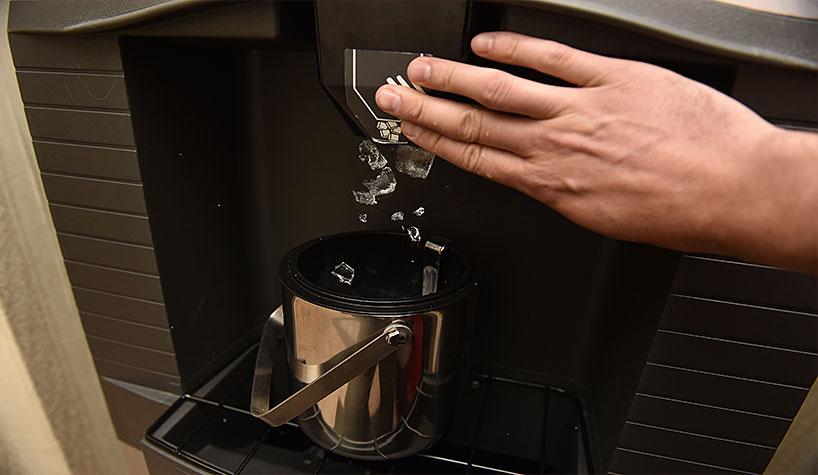MARQUETTE, MI—Ice machines have been an essential appliance at hotels since 1952, when the original Holiday Inn in Memphis, TN, became the first property to offer guests free ice.
When running optimally, ice machines can disperse millions of clean, drinkable ice cubes. But things like hard water and germs can affect what’s coming out of the apparatuses.
“Hard water is water with a high concentration of minerals in it. In ice machines, it can cause issues because the minerals—specifically calcium and magnesium—will bond together to create scale,” said John Mahlmeister, COO of Easy Ice, based here. “Scale is a hard, chalky substance that can stick strongly to surfaces where water is present. You’ve probably seen scale forming on faucets, showerheads or bathroom tiles. When scale sticks to ice machine components, it can cause a number of problems, some of which will require a hefty repair cost to fix. Cleaning scale is difficult without specialized cleaners and is best done by a professional.”
Easy Ice, a national provider of ice machines via a full-service monthly subscription, has more than 500 hotel clients throughout the country, as well as several hundred restaurants within a hotel setting. The company has seen its share of hard water issues.
For hotels that use municipal water, testing for hard water can be done by contacting the municipality to find out the total hardness of the water used on property, noted Mahlmeister, who added, “If you’re on well water, you can use hard water test kits, which can be found easily online or at your local hardware store. This test should only need to be done once every year or two.”
There are a number of ways to treat hard water, including reverse osmosis, water softening systems and phosphate filters. Mahlmeister pointed out that “many of these processes treat the water so calcium and magnesium particles won’t bond together.”
With the novel coronavirus on top of mind for everyone across the world, it is important to know that germs don’t thrive well on non-organic, cold surfaces, including ice. However, the potential for spreading disease from an ice machine is still possible.
“The contamination of an ice machine starts with the user rather than the ice machine itself,” said the Easy Ice executive. “When people practice bad ice handling techniques—grabbing ice with their hands, using glassware to scoop ice, not washing their hands before using the machine, etc.—they can spread germs to the ice machine surface just like any other surface.”
Prevention is key for any hotel. The last thing it needs is a complaint or bad review of a dirty ice maker. Mahlmeister provided some tips on how to prevent germs from spreading on the ice machine.
“For ice machines that only employees have access to, the best way to stop the spread of germs is to communicate ice handling best practices to your hotel staff,” he said. “Ice is defined as a food by the FDA, and employees should practice the same level of care when serving ice as they do preparing or serving a meal. That includes washing their hands frequently, especially after using restroom facilities; using a designated ice scoop to dispense ice into glassware; and cleaning, disinfecting and sanitizing the ice machine the same way they would other food contact surfaces.”
He continued, “Ice dispensers for guest use can be a little trickier. You can’t exactly keep track of or enforce your guests’ ice-handling practices—but you can encourage good habits. Setting up a dispenser with disinfecting wipes or hand-sanitizing stations near the machine is a good start. Placing signage encouraging guests to sanitize their hands or wipe down ice-dispensing buttons before using the machine can help create a more sanitary environment.”

